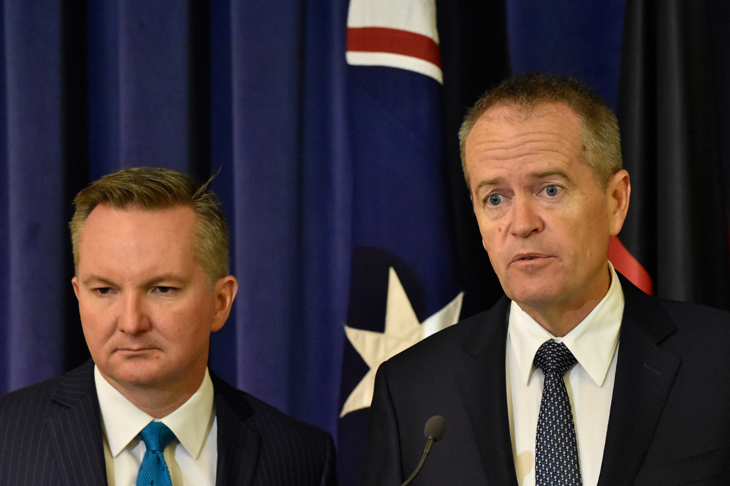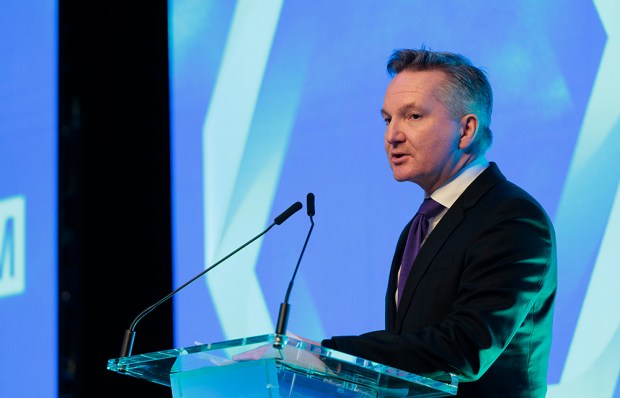Having politically sabotaged the government’s tax reform package (and endangering its own prospective corporate tax cuts) the big end of town must fix the mess created by its misdemeanors. The nation’s corporate leaders have to get off their butts rather than leaving it to industry associations and personally take on the political heavy lifting they always shy away from – except, of course, when it comes to virtue-signalling social agendas like gender, same-sex marriage and climate change. If they really want tax reform, they have no option but to get into the political kitchen, cop the heat and demonstrate to the rag-tag gaggle of opportunistic cross-bench Senators who determine what legislation governments can implement, that passing the budget’s tax reform package is overwhelmingly in Australia’s best interests. This demands a concerted campaign; Opposition leader Bill Shorten’s class-war attack on last week’s budget with his rival bigger tax handouts, big-spending (and big taxing) promises, rejection of significant reforms and extraordinary ability to fantasise (‘It’s time to be responsible. Labor’s tax reforms put us in a much stronger position to cope with any international uncertainty’) puts populist cross benchers under severe political pressure. The Australian Democrats never recovered from being responsible and supporting John Howard’s GST; cross-benchers will be reluctant to be seen as opposing Labor’s promised tax handouts for lower income earners and instead agreeing to Coalition plans seen as rewarding, with company tax cuts, the unethical corporate behaviour more of which will probably be exposed by the Royal Commission.
The distrust of company directors and their excessive remuneration, the ‘moral and accountability failures of some of the nation’s most important financial institutions’ like the banks, and tax cheating by multinationals has given ‘Unbelieva-Bill’ Shorten a political broadsword to swing at the government’s planned (five years off) big corporate tax cuts and at the condensing of marginal personal income tax rates. So far, Shorten has successfully demonised corporate tax cuts, is winning the debate over capital gains tax and negative gearing and is getting away with the totally dishonest but effective line that he would fund his bigger tax cuts for lower income earners by rejecting the budget’s ‘$80 billion handout to big business, banks and multinationals’.
All this, and the CFMEU’s full page anti-Turnbull ‘banker’ ads, require responses; business leaders cannot leave the battle to a Turnbull government whose incapacity to sell good messages helps explains its miserable one-seat majority and poor opinion polls. Shortens’s lies must be nailed; his fictional $80 billion to ‘big business’, falsely includes significant tax cuts to small business already legislated and the ‘big end of town’ corporate tax cuts do not start for five years so cancelling them won’t provide one cent to pay for next year’s Labor income tax cut.
When, in this capital-hungry nation with an increasingly uncompetitive corporate tax rate, will there be an effective attack on Shorten’s xenophobic objection to foreign investors benefitting from our corporate tax cuts? Even worse is Shorten’s shonky attack on the welcome budget proposal to extend, over seven years, the 32.5 per cent marginal tax rate from $40,000 to $200,000 in order to limit the bracket creep that pushes rises in monetary wages into higher tax brackets. ‘How on earth can it be fair for a nurse on $40,000 to pay the same rate of tax as a doctor on $200,000?’, was Shorten’s dishonest response. On the contrary, the doctor’s actual tax rate of 30 per cent would be almost three times higher than the nurse’s while the doctor on five times the nurses’ income would pay more than 12 times the nurse’s tax. The Australian’s Paul Kelly is concerned that there will still be so much progressivity that the number in the top tax bracket will double to 820,000; 6 per cent of taxpayers who will be providing 36 per cent of projected income tax, up from the current 30 per cent. He wonders ‘how tenable is it for such a small proportion of taxpayers to be contributing so much… while more than four out of ten households pay no net tax’.
The battle lines have been drawn up; does corporate Australia have the stomach to defend itself?
Got something to add? Join the discussion and comment below.
Get 10 issues for just $10
Subscribe to The Spectator Australia today for the next 10 magazine issues, plus full online access, for just $10.
You might disagree with half of it, but you’ll enjoy reading all of it. Try your first month for free, then just $2 a week for the remainder of your first year.














Comments
Don't miss out
Join the conversation with other Spectator Australia readers. Subscribe to leave a comment.
SUBSCRIBEAlready a subscriber? Log in